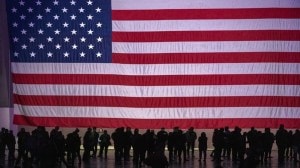The Managing Director and CEO of Cipla, Umang Vohra is confident that tariffs and regulations in the US will not impact the competitiveness of Indian generics and are a long-term positive for the Indian pharma sector. He reiterated that, “Indian generics industry will remain intact even if US imposes tariffs.” This was during a conversation with international brokerage house Nomura where they touched upon various issues that are impacting the sector and Cipla.
In the note that Nomura shared based on the key takeaways from the conversation, Vohra highlighted that he is “positive on the GLP-1 and semaglutide opportunity in India as Cipla prepares to participate in the first wave.” According to Nomura, the oral formulation also presents a high-value opportunity for companies that overcome the IP and regulatory barriers.
Vohra expects “Cipla to sustain current earnings or grow them marginally post gRevlimid and doesn’t expect a steep fall.” Nomura pointed out that the comments are “largely aligned with our expectations. We have a Buy rating on the stock with a March 2026 target price of Rs 1,780.” This implies 22% upside for the Cipla share price from current levels. The Nomura price target is based on “28.5x FY27 EPS expectation of Rs 62.30.” The brokerage expects “FY25 EPS at Rs 62.90 while for FY26 it is seen at Rs 60.90.”
Nomura on Cipla: Manufacturing of generics unlikely to shift to US
According to the Nomura report based on the conversation with Cipla’s Umang Vohra, “the competitiveness of the Indian generics industry will remain intact even if US imposes tariffs on generic pharmaceuticals. They are three to four times more expensive to produce in the US compared to India.”
They believe that for competitive products, for example oral solids, it is highly unlikely that manufacturing will ever shift to the US. For products where competitive intensity is low – for example, drug device combinations/inhalers – there may be a case for manufacturing in the US.
However, “There is a possibility that customers (PBMs) may prefer (preferred formulary) domestically manufactured products and allocate a certain percentage to such procurements in the future. Cipla has expanded capacity in the US and intends to manufacture such products,” the report stated.
In the case of tariff barriers, “generics companies are likely to be more selective, focusing on high-value opportunities including ‘first to file’. Upside from FTFs would justify the investments in product development,” Vohra explained in his conversation with Nomura.
If a sudden tariff were to be imposed on the industry, it would be difficult for the industry to pass on the entire impact to customers, particularly for products where competition is high (more than five players). However, where competition is limited, the impact would more likely be passed on.
Nomura highlighted that the Cipla management comments were “largely aligned with our views . We highlighted that companies are unlikely to make investments in the US given a lack of economic viability. Tariffs could have some negative impact in the short run as companies would not be able to pass on the entire impact of tariffs to customers for products where competition is high. We expect tariffs may lead to exits by marginal players, consolidation in the industry, relatively better pricing discipline and rationalization of R&D spending towards complex products.”







